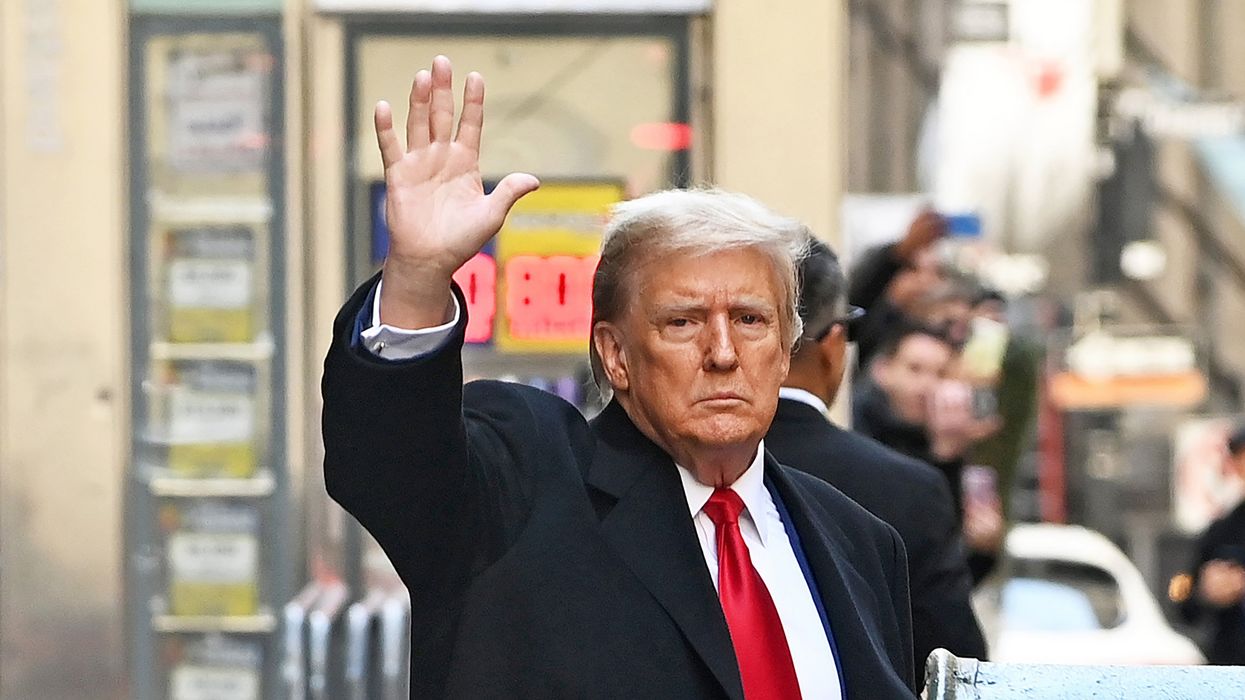Goldberg is editor-in-chief of The Dispatch and the host of The Remnant podcast. His Twitter handle is @JonahDispatch.
Donald Trump’s domination of the primaries made it official: He has successfully routed the GOP establishment.
Some would argue, with ample evidence, that this happened a long time ago. Particularly in Congress, the party is divided into three sometimes overlapping factions: Reaganites, pragmatists and populists, the last being Trump’s “MAGA” faction. Politicians from the non-MAGA factions have been retreating, retiring or reinventing themselves in Trump’s image for years now.
If Republican Sens. Mike Lee of Utah, Ron Johnson of Wisconsin, Tim Scott of South Carolina and Marco Rubio of Florida aren’t fully MAGA in their hearts, you wouldn’t know it from their current public personas. Other Republicans, including former Sens. Rob Portman of Ohio, Jeff Flake of Arizona, and Bob Corker of Tennessee, along with former Reps. Paul Ryan of Wisconsin, Eric Cantor of Virginia, and Liz Cheney of Wyoming, were either shown the door or fled for it themselves. And outside institutions such as the Conservative Political Action Committee, or CPAC, and the Heritage Foundation have repositioned themselves as MAGA organs.
That process has accelerated since Trump effectively locked up the Republican nomination for president for the third time. Over the past few months, non-MAGA Republicans such as Reps. Mike Gallagher of Wisconsin, Patrick McHenry of North Carolina and Cathy McMorris Rodgers of Washington have announced that they will be leaving Congress. And Senate Minority Leader Mitch McConnell, the last actual avatar of “the GOP establishment,” declared that he would not run to lead the Republican caucus again and went on to endorse Trump.
The takeover is culminating with the Trumpian captivity of the Republican National Committee. There’s virtually no Republican establishment left that isn’t synonymous with the Trump establishment.
Michael Whatley, the former head of the North Carolina GOP, is the new national chairman, having earned Trump’s favor as an unrestrained booster of his claim that the 2020 election was stolen. Lara Trump, the former president’s daughter-in-law, is serving alongside Whatley as co-chair. And Chris LaCivita, a top Trump campaign adviser, will run day-to-day operations. On Monday, they began a wholesale purge of staffers deemed insufficiently loyal.
Trump’s son Donald Jr. agrees that it’s official. In an interview with Newsmax Sunday, he said the old GOP establishment “no longer exists. … People have to understand that America first, the MAGA movement, is the new Republican Party. That is conservatism today.”
Now, one can quibble over whether a political philosophy that traces itself back to Edmund Burke and the American founding can be transformed by the installment of Trump apparatchiks at the RNC. Trump himself might even agree with those quibbles.
Trump has previously described himself as a “ nationalist,” and he at least partly rejected the conservative label in an interview with CNBC’s “Squawk Box” on Monday. “People say, ‘You’re conservative,’ ” Trump said. “I’m not conservative. You know what I am? I’m a man of common sense, and a lot of conservative policies are common sense.”
Whatever we call him, what’s clear is that Trump thinks his team can go it alone. At a recent Virginia rally, he declared that MAGA “represents 96%, and maybe 100%” of the GOP. “We’re getting rid of the Romneys of the world. We want to get Romneys and those (like him) out.”
Normally, general election candidates try to expand their coalitions. Primary election exit polls — and the actual results — belie Trump’s claim that the party is now almost pure MAGA.
“In each of the six states with entrance and exit polls,” a CNN analysis found, “a sizable minority of the GOP electorate identified directly as a part of the MAGA, or ‘Make America Great Again,’ movement, ranging from about one-third in California, Virginia and New Hampshire to nearly half in Iowa.” Put another way, between half and two-thirds of those primary-voting Republicans don’t identify as MAGA. Most will still likely hold their nose and vote for Trump in November, but that’s not proof that the GOP is totally Trumpian.
The national GOP leadership, however, is now a wholly owned subsidiary of Trumpism. That behooves a movement that has often been as concerned with taking over the party as taking over the government. In Republican primaries, Trump has tended to back loyalists with dim general election prospects over more traditional Republicans with a better chance of actually winning House and Senate seats. The MAGA movement seems convinced that a purer party dedicated to Trump is for some reason better than one saddled with the remnants of the old GOP coalition.
For all practical purposes, their wish has been granted. That’s good for the movement if Trump wins in November. But if he loses, they’ll have no one to blame but themselves. After all, they’re the establishment now.
First posted March 12, 2024. (C)2024 Tribune Content Agency, LLC.




















Trump & Hegseth gave Mark Kelly a huge 2028 gift